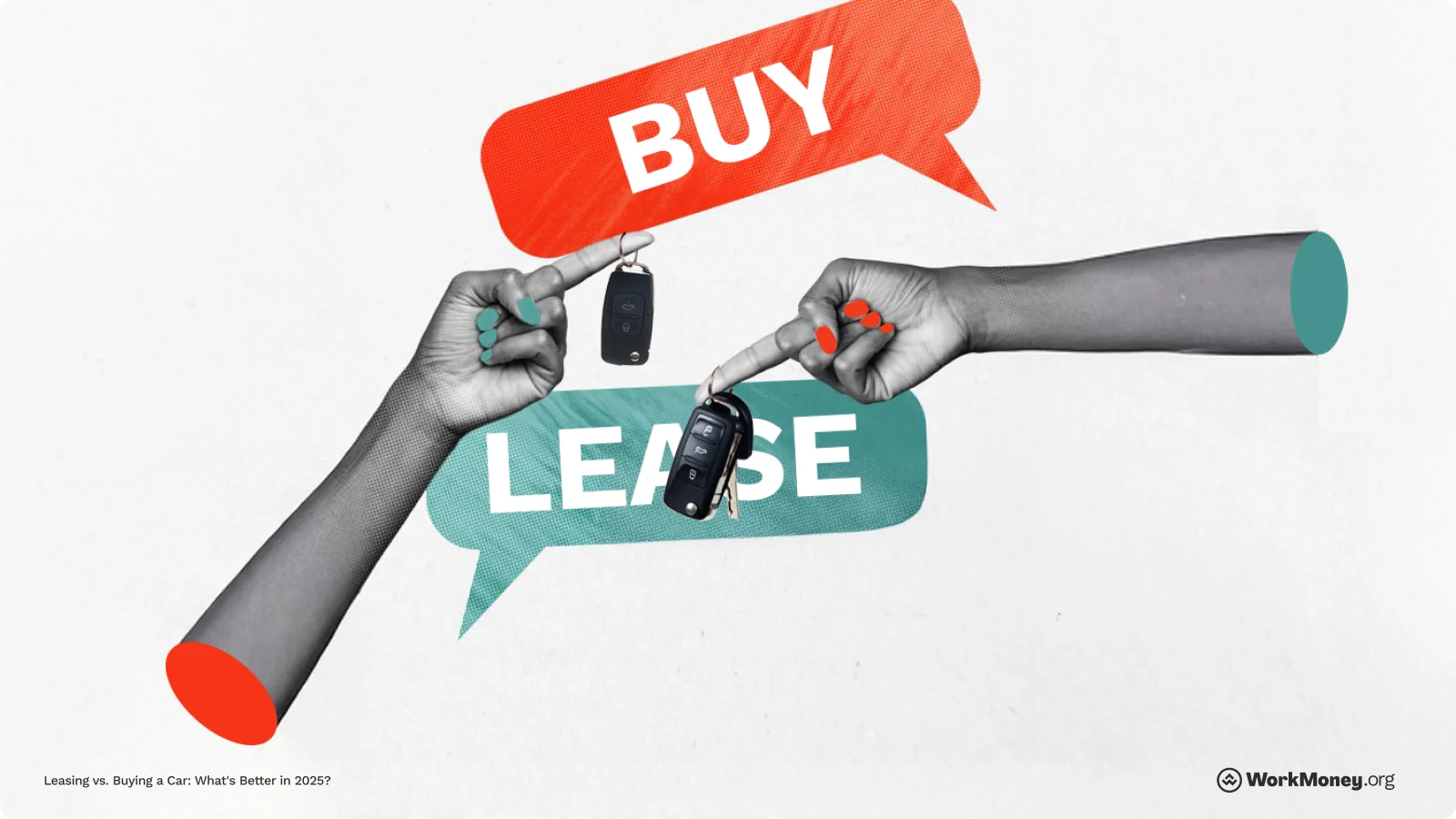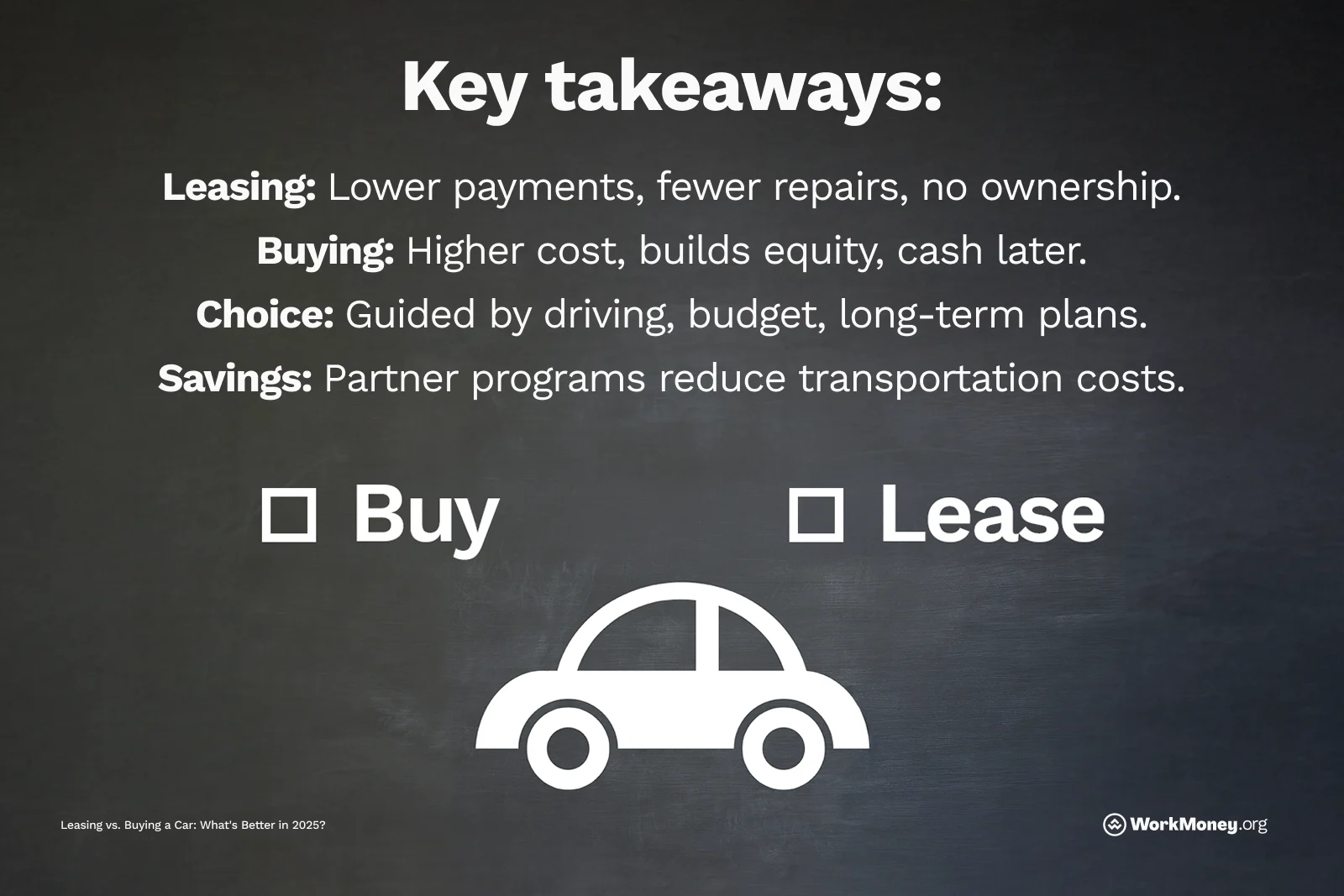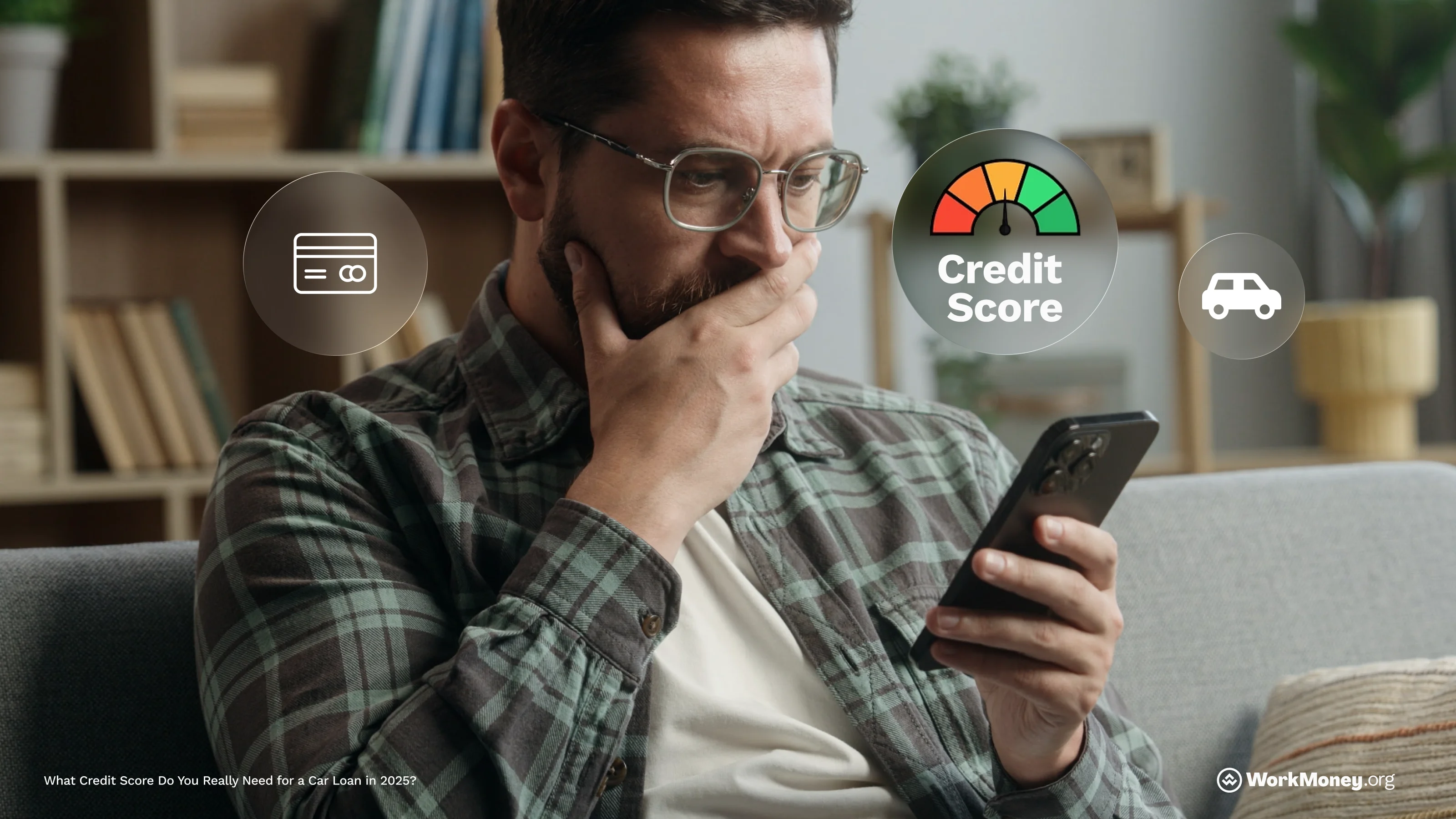Leasing vs. Buying a Car: What's Better in 2025?
Crunch the numbers, weigh your lifestyle, and ride smart

For many people, when it’s time to get a new set of wheels, one big question may come to mind: should you lease or buy? Both options have advantages and drawbacks. But the “right” choice for you isn’t a one-size-fits-all. The answer depends on your budget, driving habits, and long-term financial goals.
At WorkMoney, we’re here to break it down so you can make a decision that works for you and your wallet. We’re not selling cars. We’re here to help you cut your total costs, take advantage of money-saving programs, and drive away feeling confident about your choice.

Final Thoughts
There is no one-size-fits-all answer to the question of whether you should lease a car or buy. It comes down to your lifestyle and budget. Leasing often means lower payments and the chance to drive a new car every few years, but you’ll never be free of monthly bills. Buying costs more upfront, but once the car is paid off, you could free up hundreds each month. The best choice is the one that keeps your finances steady and works for your long-term goals.
About the Author

DeShena Woodard
DeShena Woodard is a Financial Freedom Coach, Certified Life Coach, freelance personal finance writer, and podcast host. Her story, advice, and expertise have been featured in prominent outlets such as CNN Underscored, Business Insider, Yahoo Finance, NerdWallet, and more. Through her platform, Extravagantly Broke, she helps women take control of their finances with simple, stress-free strategies—without sacrificing the joy of everyday life. When she’s not writing or coaching, DeShena enjoys traveling, biking, and spending time with her family.

